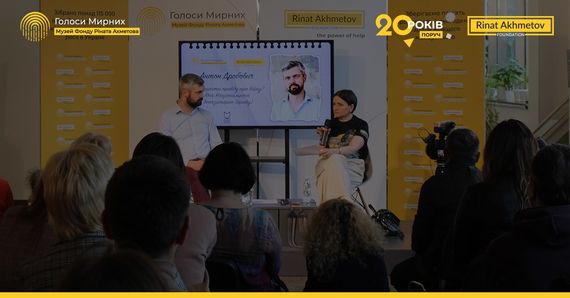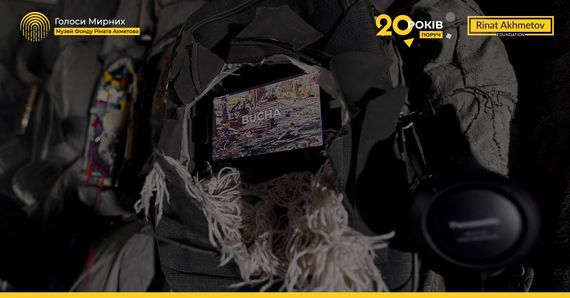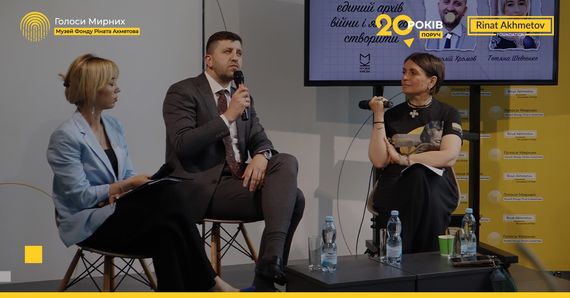“Ukraine Has the Opportunity to Create the Largest War Archive in the History of Humankind”: A New Interview of Dr. Piotr Cywiński, Director of the Auschwitz-Birkenau Museum, at the Museum of Civilian Voices of the Rinat Akhmetov Foundation
.png?content_type=image%2Fpng&disposition=inline%3B+filename%3D%22image+%252840%2529.png%22%3B+filename%2A%3DUTF-8%27%27image%2520%252840%2529.png)
Dr. Piotr Cywiński is the director of the Auschwitz-Birkenau State Museum and the president of the Auschwitz-Birkenau Foundation (Poland). This autumn, he visited Ukraine as a specially invited guest and speaker of the Forum of Oral History of Ukraine, which was held in Kyiv at the initiative of the Museum of Civilian Voices of the Rinat Akhmetov Foundation.
Dr. Cywiński told LB publication about the preservation of memory, some painful points of history, Auschwitz, and memorialisation of wars.
“Memory and history are closely linked, but they are different. Historical knowledge is information and facts, while memory is kept at the level of self-identification. It is what is inside us. The most crucial thing is the unquestionable following of history. Even where we do not really like it. The truth is always complex and multi-component. And for the memory to be therapeutic, it should also touch upon points that are painful for society,” said Mr. Cywiński.
The historian advises paying attention to things [physical items], to try to preserve certain elements that would tell people about the tragedy, as often things can tell us much more and be louder than words. In addition, Dr. Cywiński advises being very careful with artistic elements, because through them architects, artists, sculptors convey not facts, but rather their own vision of the situation. Yet, the historian considers people’s voices to be the most important.
“All this will not work if we do not carefully listen to the voices of those people who survived the tragedy. It is these people who know the most about it. Usually, a person who survived a tragedy wants to tell people about it early on, but then falls into a period of silence, after which he or she begins to learn how to live again, now having this trauma. These stages should be taken into account when collecting data from people who came through a tragedy,’ emphasizes Mr Cywiński.
The historian notes that the most important step for Ukrainian society at the moment is to collect as much information as possible about the war. Not to analyse it immediately, but look for ways to collect and, most importantly, store such information. There is always a lack of time and other resources, and the availability of a big amount of data from the war is crucial from the point of view of history, which will give a wider field for reflections, but already more balanced ones.
“I can call Ukraine a world champion in terms of communicating information about the war to the world. I am convinced that this war in Ukraine is currently the most documented in Europe. But documenting it is only part of the story. It is very important not to lose these materials, to save them. Now there is an opportunity to create the largest war archive in the history of humankind,” the historian emphasized.
You will find the full text of the interview on the portal of the Museum of Civilian Voices of the Rinat Akhmetov Foundation at the link
Every war story matters. To preserve the memory for a better future, tell your story on the portal of the Museum of Civilian Voices of the Rinat Akhmetov Foundation or via the toll-free hotline 0 (800) 509 001.



